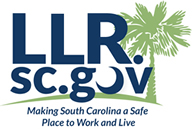Hello REALTORS®,
“Budget” is not just a state or federal government word—it dominates local government agendas each year about this time. This week, I thought I would give you an overview of why budgets are difficult, and what we can expect in the years to come. But first, what about this year’s budgets?
For the most part, our local governments, especially counties, larger cities, and school districts, have made only incremental changes to their millage rates. Anderson County didn’t change their millage. Neither has Pickens County, although they did reduce the millage earmarked for roads by nearly 50% and allocate it elsewhere. Oconee County’s millage will remain the same as well, but a portion of their millage that was moved last year from county operations to the school district has been taken back by the county.
But Act 388, and the way local governments have handled reassessments since it was enacted, is looming large.
What is Act 388?
The SC General Assembly overhauled property taxes in 2006 with what has become known as Act 388. Among other things, Act 388 removed school operations expenses from the property taxes of owner-occupied homes and replaced it with an additional 1 cent sales tax. It also capped increases in the assessed values of owner-occupied homes at 15% each 5-year reassessment period.
Act 388 didn’t seem that important immediately after it was adopted because of the Great Recession. And local governments got a reprieve from their looming fiscal problems because of a large infusion of revenue from the federal government during the COVID crisis. But Act 388 has become very important, especially in recent local government budgets.
Reassessments and Millage Rates
Act 388 dictated a new reassessment process that required local governments to reduce their millage rates after each reassessment to match the amount of money they brought in the previous year. But it also allows them to raise millage rates afterward to account for inflation and growth.
Many local governments, especially during the Great Recession, reduced millage rates after each reassessment and didn’t account for growth and inflation. Some of them even bragged about it to voters.
What local governments were doing was use the new revenue they received from growth to give the rest of us a tax cut, which was great for us. The problem, as any business owner knows, is that inflation is an immovable force. And growth—thousands of new homes and businesses and tens of thousands of new residents each year—need services from their government too. And clawing back those millage rate reductions has been very unpopular where it has already happened. Two have been in the news in the last couple of years:
- Greenville County, which increased millage rates by 7 mills in 2023 after reducing them by the same amount the year before following reassessment.
- Easley, which is increasing millage rates for the third year in a row with their 2026 budget.
Not all local governments succumbed to the political popularity of tax cuts. Pickens County, for example, has kept their millage rates stable for the most part. You can see that in their 2026 budget proposal, which includes a 23% increase in tax revenues. Most property owners will pay more not because millage rates rose, but because their property values increased.
What’s Ahead?
Some local governments that reduced millage rates are facing a fiscal reckoning. Recently, I reported to the Government Affairs Team that I am expecting a wave of new and increased fees. Some have already happened—substantial increases in water and sewer utility connection charges. Today, a new home pays more than $7,000 in water and sewer impact and tap fees. One district is charging more than $10,000 just for sewer.
Last year, Anderson County Council asked voters for permission to increase the sales tax by 1 cent to pay for transportation improvements. That referendum failed, but the county is reworking that request to include property tax relief and a narrower focus on just roads. I expect that question will be on the ballot again this fall.
Support RPAC
RPAC is an important element of your Realtors Association’s advocacy program. I encourage you to support RPAC, and we make it easy to do so—we include a voluntary RPAC contribution on your annual dues renewal. Simply pay it and you have support RPAC. If you want to do more that modest amount, that’s easy too.
Michael Dey, Director of Government Affairs



